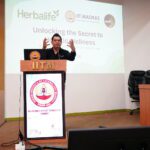Disease outbreak news:
India
healthysoch.com
The Ebola virus disease (EVD) outbreak in North Kivu and Ituri provinces in the Democratic Republic of the Congo continued this week with similar transmission intensity (Figure 1). While the last few weeks of the outbreak have been characterized by the geographic expansion of cases to new health zones, we continue to see high case numbers, sustained local transmission, and inter-health zone movement of cases both into and out of the hotspot areas of Beni, Mandima, and Butembo. In the past 21 days from 31 July through 20 August 2019, 69 health areas within 19 health zones reported new cases (Table 1, Figure 2). During this period, a total of 216 confirmed cases were reported, with the majority coming from the health zones of Beni (31%, n=66), Mandima (18%, n=38), and Butembo (8%, n=18). High risks of transmission are also associated with an emerging cluster in the city of Mambasa, which has reported 14 cases in the past 21 days. The response continues to address these hotspots through early case detection and thorough investigation, strong contact identification and follow up, and engagement with the local communities.
Two new health zones reported cases in the past week: Mwenga Health Zone in South Kivu and Pinga Health Zone in North Kivu. In Mwenga, four confirmed cases were reported after two individuals (mother and child) had contact with a confirmed case in Beni before travelling south. The father of the child was subsequently confirmed positive as was a co-patient in a community health facility where the first case initially sought care.
In Pinga, one confirmed case has been reported with no apparent epidemiological links to other cases and no recent travel or visitors from outbreak affected areas. Pinga presents an added challenge to response teams in terms of remoteness, limited telecommunications, security risks, and resistance within the affected family and community.
As of 20 August, a total of 2927 EVD cases were reported, including 2822 confirmed and 105 probable cases, of which 1961 cases died (overall case fatality ratio 67%). Of the total confirmed and probable cases, 58% (1697) were female, and 28% (830) were children aged less than 18 years. To date, 154 health workers have been infected.
Eleven additional probable cases were validated last week, among these were cases who died in the community in Katwa, Kyondo, Vuhovi, and Mabalako health zones during March through June 2019 with epidemiological links to the outbreak; these cases could not be sampled for laboratory testing to confirm/exclude EVD.
On 19 August 2019, a “ville morte” protest took place in Beni, Butembo, and Oicha in response to recent attacks by armed groups on civilians. This resulted in a temporary suspension of Ebola response activities. Operations resumed on 20 August 2019 with increased caution, and further demonstrations are anticipated. The suspension of Ebola response activities often results in an increase of case numbers and spread of cases to new areas in the subsequent weeks.
Figure 1: Confirmed and probable Ebola virus disease cases by week of illness onset by health zone. Data as of 20 August 2019*
*Data in recent weeks are subject to delays in case confirmation and reporting, as well as ongoing data cleaning. Other health zones include: Alimbongo, Ariwara, Biena, Bunia, Goma, Kalunguta, Kayna, Komanda, Kyondo, Lolwa, Lubero, Mambasa, Manguredjipa, Masereka, Musienene, Mutwanga, Mwenga, Nyankunde, Nyiragongo, Oicha, Pinga, Rwampara, Tchomia, and Vuhovi.
Figure 2: Confirmed and probable Ebola virus disease cases by week of illness onset by health zone. Data as of 20 August 2019*
**Total cases and areas affected based during the last 21 days are based on the initial date of case alert and may differ from date of confirmation and daily reporting by the Ministry of Health.







